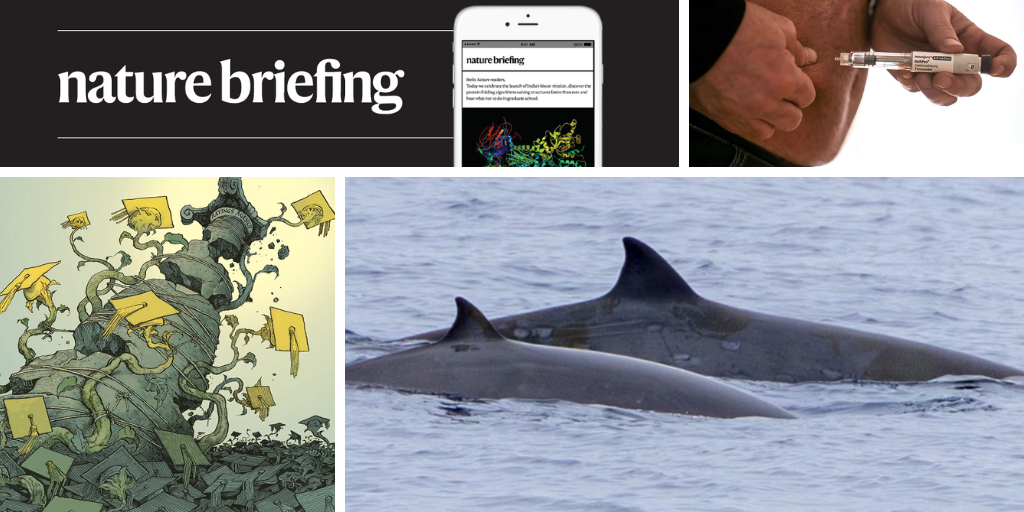
"Researchers tracked a mysterious whale call off the coast of Mexico to spot, for the first time, living ginkgo-toothed beaked whales (Mesoplodon ginkgodens) at sea. Researchers used a modified crossbow to grab a tiny skin sample from one of the whales and confirm its nature. The 24 species of beaked whales are rarely seen because they live offshore in deep water and rarely surface, so most of what's known about them comes from their underwater echolocations and the remains of dead animals."
"Researchers have found the oldest RNA molecules to date in mummified woolly mammoth tissue. RNA is a fragile molecule, which makes intact ancient samples few and far between. But such samples are sought after because analysing ancient RNA could shed light on the gene activity of extinct animals. Scientists used enzymes to convert RNA in the mammoth tissue to DNA, and then reverse-engineered the original RNA sequences. This technique recovered fragments of RNA from three samples, dated to between 39,000 and 52,000 years old."
Researchers tracked a mysterious whale call off the coast of Mexico and spotted living ginkgo-toothed beaked whales (Mesoplodon ginkgodens) at sea for the first time. A modified crossbow captured a tiny skin sample that confirmed the species. Beaked whales are rarely seen because they live offshore in deep water and rarely surface, so most knowledge comes from echolocation and strandings. Scientists recovered the oldest RNA molecules yet from mummified woolly mammoth tissue by converting RNA to DNA with enzymes and reverse-engineering original sequences, recovering fragments dated 39,000–52,000 years. The obesity drug tirzepatide suppresses brain activity patterns associated with food cravings.
Read at Nature
Unable to calculate read time
Collection
[
|
...
]